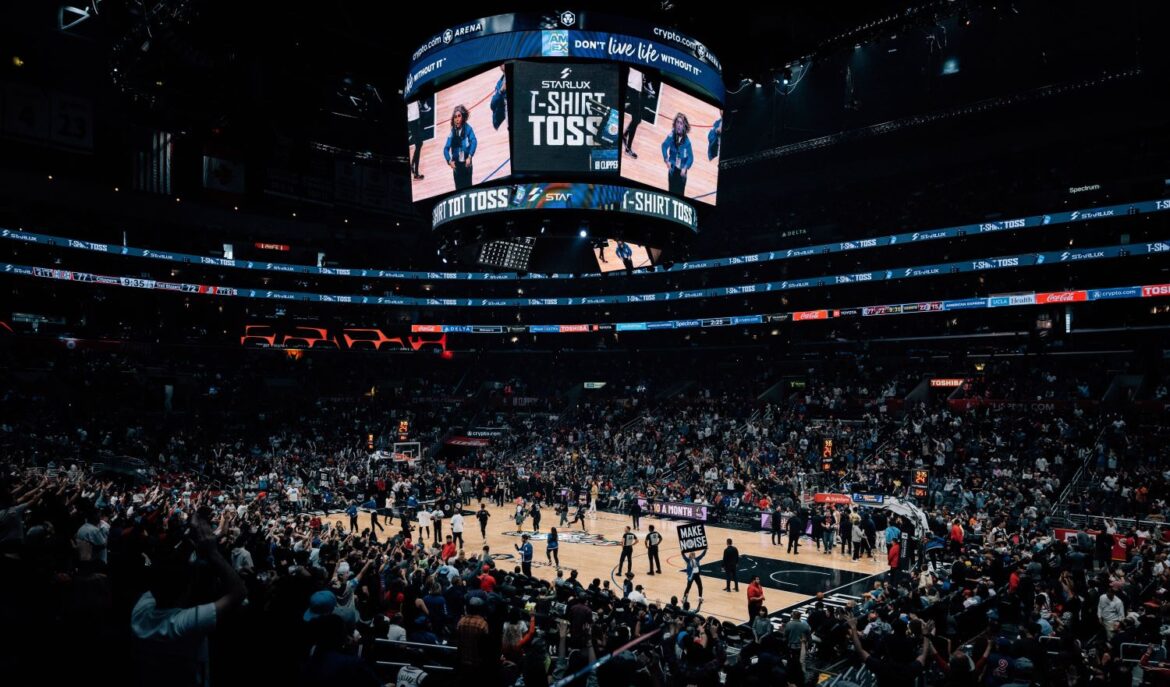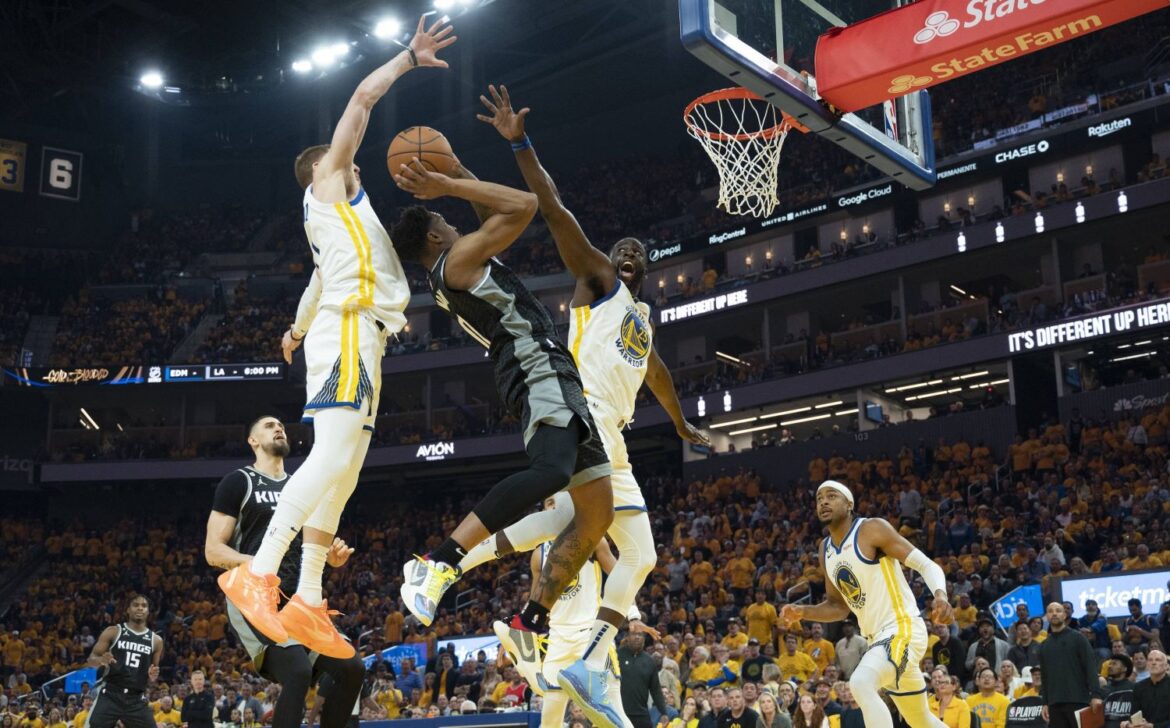The National Basketball Association (NBA) has a track record for being an innovation leader. No matter whether it’s the introduction of personalized fan engagement solutions to its digital product portfolio, or the league’s ability to collect and track user data via its mobile-support NBA ID membership program, North America’s flagship basketball competition continues to push the boundaries.
This sentiment extends to the NBA’s business operations, too, having migrated its information technology (IT) suite to Microsoft Azure as part of the league’s cloud evolution. Speaking on the transformation, the NBA’s Business Systems Lead, Puneet Toteja, said the decision to migrate its systems is “pushing us to think outside the box and bring innovation to our business processes”.
Adam Silver, the NBA’s commissioner, said in October that the proliferation of direct-to-consumer (D2C) media will see the league undergo significant changes over the next five years, through the customization and personalization of content. In addition, he has also attributed the NBA’s growth to the “new generation of [franchise] owners” who understand the value of data.
How this approach translates to the NBA’s franchise teams is of particular interest. “It was in [the owners’] DNA to look at data in the same way they looked at it in other businesses and other industries they had been involved in,” Silver explains. “That changed the culture of the league.”
Motasem El Bawab, N3XT Sports Chief Information Officer (CIO), and a retired basketball player, says it is the sports organizations “that pore over the data and invest in the software and infrastructure” that succeed in retaining subscribers and understand exactly what drives people to their platforms.
“It is no happy coincidence that the biggest sports leagues and federations are leading the charge on digital monetization,” he says, “they and their partners are also the ones investing dollars back into their digital and data infrastructure and performance-marketing capabilities in order to grow and commercialize the fan experience organically.”
To mark the upcoming 2022/23 NBA Finals and the final weeks of the NBA’s 77th season, our team assesses the digital maturity of the league’s past four victors, with a focus on the digital innovations each team has added to its respective organization, and the solutions that continue to put the league at the cutting edge of sport’s digital transformation.
TORONTO RAPTORS | 2019 CHAMPIONS
Showcasing its continued innovation efforts, the Toronto Raptors’ ownership group, Maple Leaf Sports & Entertainment (MLSE), this year rolled out SportsX, a dedicated research and development (R&D) program focused on creating digital solutions that enhance team performance and fan engagement.
The incubator, launched in collaboration with MLSE’s technology partner, Amazon Web Services (AWS), aims to “give anyone, from organizations to superfans, the opportunity to take their amazing idea and transform the sport they love”, explains Eric Gales, Director for AWS Canada. Christian Magsisi, vice president of venue and digital technology at MLSE, adds: “If we’re able to look into technologies that are going to impact the game, earlier, and we have people dedicated to those and not pulled away for other tasks that are more day-to-day, then we will stay ahead of the curve that’s about to impact us as an organization.”
Among its digital assets, the Toronto Raptors mobile app sits among a wide range of products owned by the MLSE group, which grant fans access using a single, unique log-in. MLSE manages other apps dedicated to the National Hockey League’s (NHL) Toronto Maple Leafs, Major League Soccer’s (MLS) Toronto FC, and the Canadian Football League’s (CFL) Toronto Argonauts. Meanwhile, the Scotiabank Arena mobile app allows fans to buy and manage tickets, purchase food and merchandise, and access “pre-sales” for concerts held at the venue.
LOS ANGELES LAKERS | 2020 CHAMPIONS
Sitting at the center of the Los Angeles Lakers’ digital transformation, fan activations and gamification play an important role in expanding the brand’s subscriber base. For example, in 2019, the Lakers partnered with the sports gamification and content vendor, GTG Network, to launch Lakers Fan Pick, which provides fans with a free prediction ahead of Lakers games via the franchise’s official team app.
In 2021, the Lakers sold naming rights to its home stadium to Crypto.com as part of a 20-year deal reportedly worth US$700 million, which also saw the cryptocurrency exchange platform become an official partner to the Lakers and Los Angeles Kings NHL teams. The Crypto.com Arena, which is also home to the Los Angeles Clippers NBA team, among the city’s other sporting franchises, is owned and operated by the Arturo L.A. Arena Company and Anschutz Entertainment Group (AEG).
Speaking at the time, AEG president and Chief Executive (CEO) Dan Bekerman said that the partnership was born from “a vision about innovation and the future of sports and entertainment”. The venue, which has also been selected to stage the basketball and wheelchair basketball events during the Los Angeles 2028 Olympic and Paralympic Games, also grants visitors access to the Contactless Mobile Ordering service provided by AEG and VenueNext, allowing users to make in-stadia purchases via the LA Lakers Official App.

MILWAUKEE BUCKS | 2021 CHAMPIONS
In the afterglow of the Milwaukee Bucks’ 2021 championship win, the franchise’s Chief Technology and Strategy Officer, Robert Cordova, outlined the vision for Deer District, the entertainment complex surrounding the Bucks’ Fiserv Forum home arena, which saw “tens of thousands of fans” gather for the Bucks’ NBA Finals victory and set a new benchmark for its on-the-ground fan experience.
Speaking to Stadium Tech Report, Cordova said that the franchise does not know exactly how many fans attended the landmark occasion, but endeavors to turn the district into a hub for connecting the franchise’s consumers with its business operations. “I always step back to the ‘why’ of technology,” Cordova explains. “From a business standpoint, so many things had to come together to create a space like that. We were so focused on [having] a plaza that allows for a commercial space. The investment that was made [in Deer District] came to fruition and is really exciting.”
As part of its fan engagement strategy, the Bucks franchise collaborates with several vendors, including GameOn Technology, which provides an artificial intelligence-driven (AI) interactive chatbot to answer fans questions via the Bucks website and mobile app. The Bucks also partners with Australian-based business service provider EngageRM to enhance the team’s daily operations and fan engagement activations using a suite of automated data analysis and customer relationship management (CRM) functionalities.
GOLDEN STATE WARRIORS | 2022 CHAMPIONS
In October, the Golden State Warriors’ Chase Center home stadium became the first venue to deploy more than 800 Aruba Wi-Fi 6E access points designed to enhance event operations and the in-stadium fan experience. The upgrade forms part of the Warriors’ partnership with Hewlett Packard Enterprise (HPE) to drive connected fan experiences at the Chase Center.
“We’re obsessed with creating the best fan experience possible,” explains Daniel Brusilovsky, the Warriors’ Vice President of Technology. “When we first had that initial conversation with the Aruba team about the potential of 6E, we were so excited about what that could bring to an environment like Chase Center. For us, it was exciting to be the first to create something unique and special for our fans utilizing this new 6-GHz spectrum.”
The ambition, Brusilovsky continues, is to enable fans “to do what they want, at the speed that they want, with the appropriate bandwidth”. Mobile-supported technologies play an important role in this transformation, too. While the Covid-19 pandemic saw the Warriors move fully to digital ticketing and concession purchases via the Warriors + CC mobile app, “connectivity” remains front and center of the NBA champions’ technology advancements.

WHAT’S N3XT?
Fan engagement is a vital component of the NBA franchise’s desire to innovate, while the term “connectivity” is front-of-mind for chief information/technology officers at the league’s leading teams. Among the most popular sports brands on the planet, the NBA proves that it doesn’t matter whether you are a multi-stakeholder league, or an individual club or franchise, technology integration is vital for driving user interaction via one’s digital product portfolio.
Given the speed in which the technology market is moving and the abundance of digital solutions and technologies available to choose from, it is important, first and foremost, that the organization has the frameworks in place to manage large volumes of fan data. This will serve to maximize the organization’s audience-reach, while establishing a CRM capability which advocates audience retention, giving the entity room to scale its digital product portfolio.
In the future, this could see franchises seek to centralize their product portfolio in order to harness data via a single sign-on (SSO) and enable the front office to personalize the fan experience based on their unique interests, which are made easier to navigate via a unique user log-in. Albeit one of the pre-eminent sports leagues worldwide, it goes to show the industry’s continuous need to innovate, no matter the entity’s audience reach or digital maturity.
Our team at N3XT Sports works tirelessly to develop and implement digital strategies across a multitude of sports properties at federation level, competition level, and club level. To learn more about how digital transformation can support the growth of your organization, fill out the form below and we’ll be in touch. Our goal is to drive the digitalization of the sports industry and our clients.



